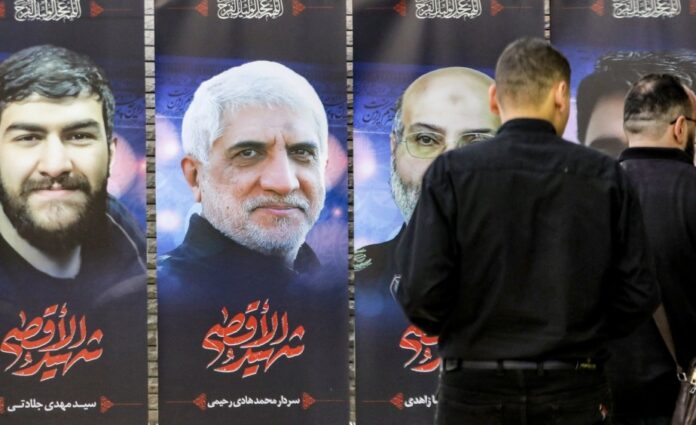In the wake of Israel’s strike on the Iranian embassy in Syria, tensions in the West Asia region have escalated dramatically, prompting heightened alerts and preparations for potential retaliation.
The strike, which resulted in the elimination of a top Islamic Revolutionary Guard Corps (IRGC) commander, Mohammad Reza Zahedi, has set off a chain reaction of military responses and diplomatic exchanges between the involved parties.
US officials have raised the nation’s vigilance level, citing concerns of an imminent attack. According to reports from CNN, the US is bracing for a possible Iranian assault on either Israeli or American assets in the region.
The intelligence suggests that such an attack could materialize as early as next week. This apprehension underscores the gravity of the situation and the potential for further escalation.
Israel, having carried out the strike on the Iranian embassy in Damascus, has also taken decisive measures in anticipation of potential retaliation.
The Israeli military has been placed on high alert, with combat units seeing leave cancellations and GPS signals being blocked. Additionally, reservists have been recalled to bolster air defence units, underscoring Israel’s readiness to defend against any potential threats.
Meanwhile, Iran has responded with defiance, placing all its armed forces on full high alert in the aftermath of the strike. Iranian officials have vowed a direct response to the attack, signalling their determination to uphold what they perceive as their nation’s honour and sovereignty.
General Hossein Salami, commander in chief of Iran’s Revolutionary Guard, minced no words in his address, declaring that Iran will not let the strike go unanswered and warning of repercussions for the “Zionist regime.”
The Iranian government has mourned the loss of seven military advisers in the strike, including Zahedi, and has reiterated its right to retaliate decisively.
This stance has further fueled tensions in the region, raising concerns about the potential for a broader conflict involving regional and international actors.
Against this backdrop of escalating tensions, US President Joe Biden engaged in discussions with Israeli Prime Minister Benjamin Netanyahu to address the evolving threat posed by Iran.
The phone call between the two leaders underscores the urgency with which the situation is being handled and the importance of coordination among allies in navigating the volatile dynamics of the region.
As the spectre of retaliation looms large and the possibility of further escalation remains a significant concern, the international community is closely monitoring developments in the West Asia region.
The repercussions of any further military action or diplomatic misstep could have far-reaching consequences, underscoring the need for restraint and diplomatic engagement to prevent the situation from spiralling out of control.
In the midst of heightened tensions and escalating rhetoric, the path forward remains uncertain. The potential for conflict casts a shadow over the region’s stability and security.
This article was created using automation technology and was thoroughly edited and fact-checked by one of our editorial staff members

